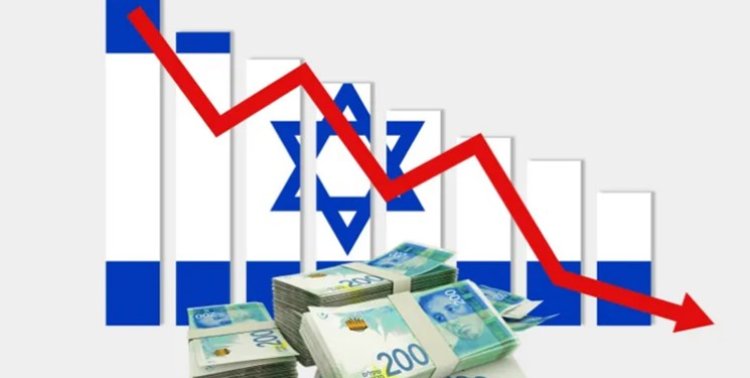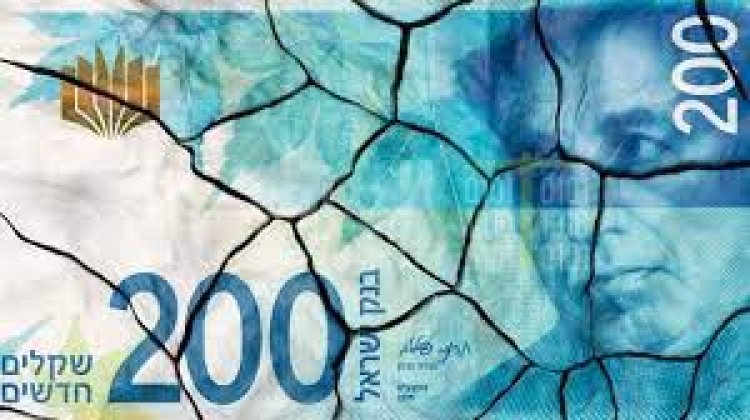Washington Post: The cost of the war on Israel’s economy is escalating

The American newspaper The Washington Post said that it may seem inappropriate now to assess the escalating financial cost of the Israeli war on Gaza, while bombs are still raining on the besieged Strip, and at a time when hundreds of Palestinians are being killed every day, along with smaller, but unprecedented numbers, Of the Israeli deaths.
Economic factors
Despite the above, the economic factors behind the Israeli aggression that has been ongoing for weeks have - according to the newspaper - strong consequences for Israel, the Palestinians, and the Middle East region.
Huge losses
Although the losses suffered by Gaza are "heavy", they have not yet begun to be counted. Half of the buildings and two-thirds of homes in the Strip were damaged or destroyed, 1.8 million people were displaced, and more than 21,000 were killed, according to the Strip's Ministry of Health.

Worse than Corona
As for the Israeli economy, it was also damaged by the war - according to the newspaper - and some economists compare the shock to which this economy was exposed to the Corona virus pandemic in 2020, but others say that the shock this time may be worse.
The newspaper reported that government spending and borrowing in Israel have increased, while tax revenues have decreased, and the credit rating may in turn be affected by the repercussions of the war, which followed the attack of the Islamic Resistance Movement (Hamas) on October 7 last.
She added that some experts expect the Israeli economy to contract, with the expected GDP falling from 3% in 2023 to 1% in 2024, according to the Central Bank of Israel.
She considered that the impact of the war on the high-tech sector in Israel, which is the engine of its economy, is worrying.
Big money
The Washington Post reported - in its report - that Israel is spending huge amounts of money on deploying 220,000 reserve soldiers on average during the past three months.
She added that many of the reservists are workers in high-tech fields, in the areas of the Internet, agriculture, finance, navigation, artificial intelligence, medicines and climate-related solutions.
She pointed out that the technology sector in Israel depends on foreign investment, which continued to diminish even before the war, partly due to investors’ concern about the state of instability resulting from the actions of Prime Minister Benjamin Netanyahu’s right-wing government.
The costs are not limited to paying the salaries of the reserve forces, and the price of bombs and bullets - according to the newspaper -; In fact, Israel also supports 200,000 people who were evacuated from Israeli villages along the Gaza border and the northern border with Lebanon, which Hezbollah bombs daily.
The authorities were forced to house and feed many of these forces in hotels in northern and southern Israel at government expense. Many of them are psychologically traumatized, and many are also without work.

Tourism disruption
Tourism was also disrupted, the beaches of Tel Aviv and the Old City of Jerusalem appeared empty of foreigners, and Christmas celebrations in Bethlehem in the West Bank were cancelled.
Construction work, which usually relies on Palestinian labor from the West Bank, has also stopped. Exports declined in all sectors, and Israeli gas fields in the Mediterranean were closed early in the war, but are now operating at part of their capacity, the newspaper confirms.
Calcalist, an economic newspaper published in the city of Rishon LeZion, south of Tel Aviv, expects that Israel's losses may reach $50 billion if the war continues for another 5 to 10 months, an amount equivalent to 10% of the country's gross domestic product.


 Shrouq
Shrouq 












